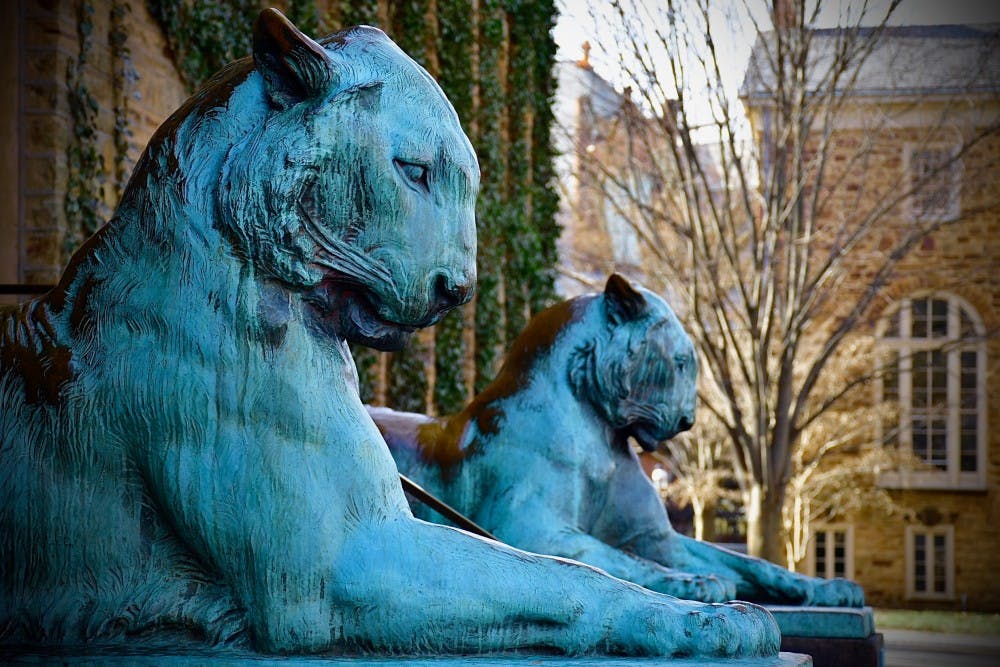Recently, I was asked by a current student at my high school to chair a virtual Model United Nations (UN) conference that my high school was hosting for its students. If alumni did not volunteer to chair, the student said, current students would lose the opportunity to participate in the conference. Due to COVID-19, conferences students had hoped to attend had either been canceled or moved online with a reduced number of delegates accepted from each high school. Chairing the conference brought me to two important realizations.
My first realization is that the pandemic’s impact on high school students — and their college applications — cannot be overstated. As detailed by columnist Rohit Narayanan ’24, COVID-19 “upended” extracurricular activities in high schools across the United States. Extracurriculars that occur virtually are hard-pressed to spur students’ intellectual curiosity, as I experienced when chairing my high school’s online Model UN conference. College application advice websites such as Collegevine offer students guidance on questions such as, “Can I list cancelled activities on the Common App?” Imagine writing a compelling college essay under these circumstances — not to mention the financial and personal strain the pandemic has caused.
My second realization, which springs from the first, is just how far removed I am from challenges facing high schoolers. As I became integrated into the Princeton community, my pre-college experiences naturally faded to the back of my consciousness. I increasingly framed my involvement in terms of the University: Aspects of my life ranging from extracurriculars to friendships all are intimately connected to Princeton. Chairing the conference shed light on the fact that the orange bubble is not so much a physical place as it is a mental space. Many of us subconsciously see the world through orange glasses.
Although moving on from high school is an important part of the college experience, Princetonians should care about high school students. Current high schoolers are, after all, our future classmates and colleagues. As Princeton prepares to welcome the Class of 2025 and as high schoolers continue to navigate the pandemic, we should seek out ways to contribute to our high schools and communities.
At this point, I would like to acknowledge that our high school experiences are varied. Many experienced hatred, judgement, or discrimination in high school. I write this article with that truth in mind. No one should be asked to give back to a place where they felt unsafe or othered. However, for those students who felt accepted and elevated by their high school communities, I encourage you to give back.
In order to better understand the role that willing Princetonians could play in their high schools, it is helpful to turn to Princeton’s alumni as an example.
Princeton’s graduates are an integral part of the Princeton community. They are also notoriously dedicated to giving back to the University, both professionally and financially. For example, when the COVID-19 pandemic caused widespread internship cancellations in summer 2020, alumni stepped to the plate by providing current students with virtual internship opportunities. Princeton graduates are happy to engage current students in coffee chats and share their personal and professional experiences after college.
Additionally, Princeton has repeatedly been identified as the national university with the highest percentage of alumni who donate to the university. Princeton’s 2018-2019 Annual Giving campaign alone raised nearly $70 million, with 55.4 percent of undergraduate alumni donating. A whopping 89.4 percent of alumni have donated to Princeton at least once.

It is abundantly clear that Princeton alumni are deeply committed to the University — for which current students are deeply grateful. Current Princeton students can benefit their high schools in the same way that Princeton’s alumni benefit the University. Obviously, monetary donations are not the method through which undergraduates can best serve (or should be asked to serve) their high schools. Volunteering time or expertise is a more realistic way for current students to benefit their former high schools.
More specific ways to get involved include reaching out to a teacher who wrote you a letter of recommendation to ask how you can help and sharing your email address with a college counselor or respected teacher at your high school so that students can contact you. Chairing events for or speaking at clubs in which you participated in high school marks another way to make a positive impact in your high school community.
Princeton is not Princetonians’ only alma mater. The phrase “once a Tiger, always a Tiger” applies to many of our high school mascots as well.
Genrietta Churbanova is a first-year from Little Rock, Ark. She can be reached at geaac@princeton.edu.









